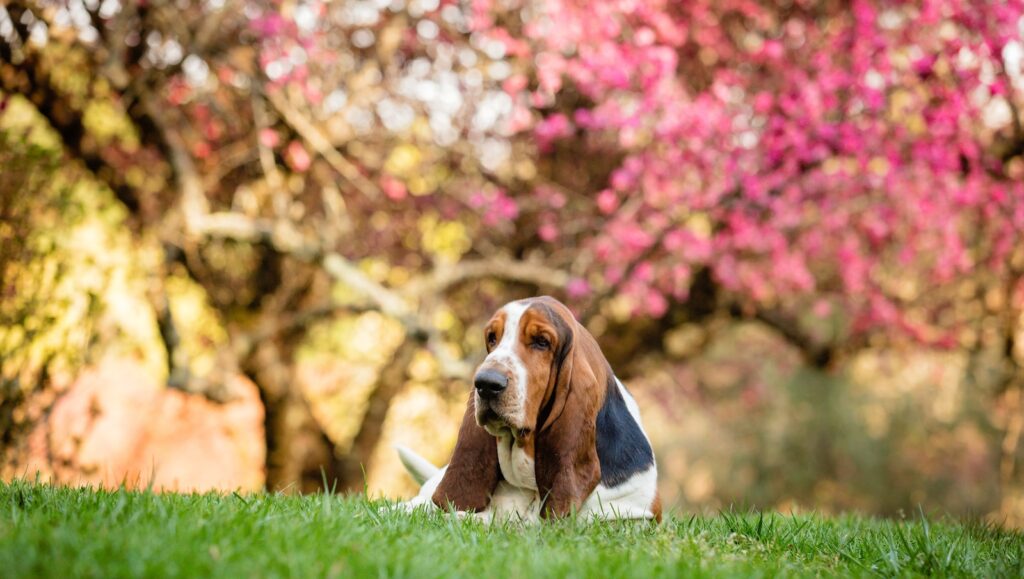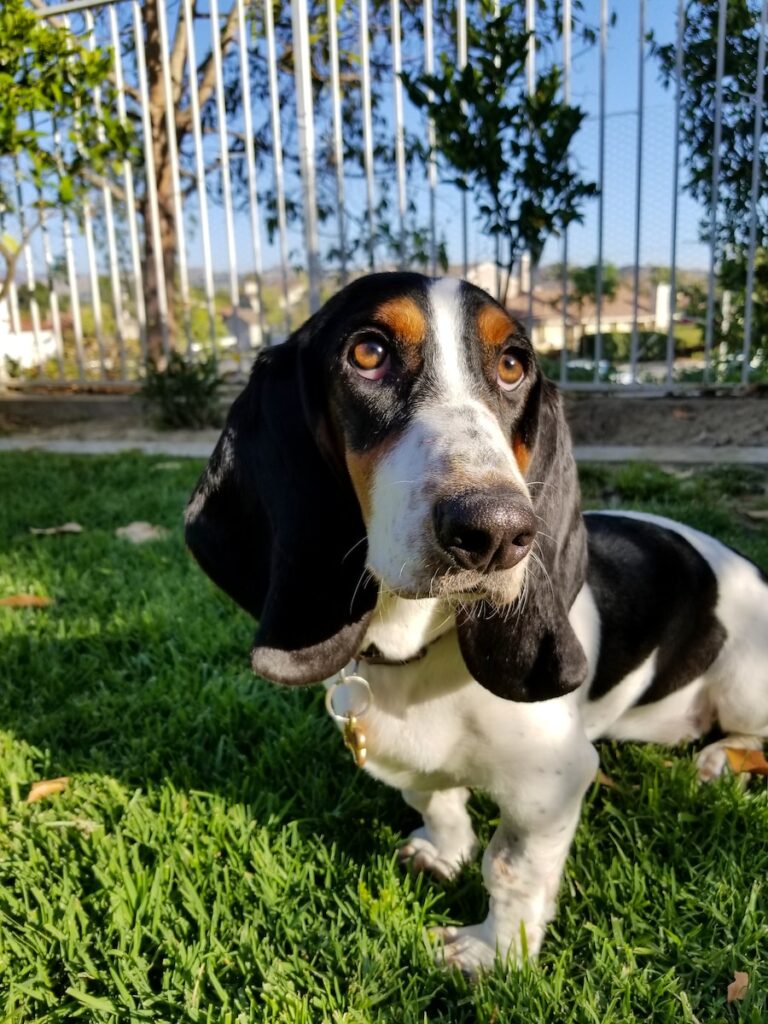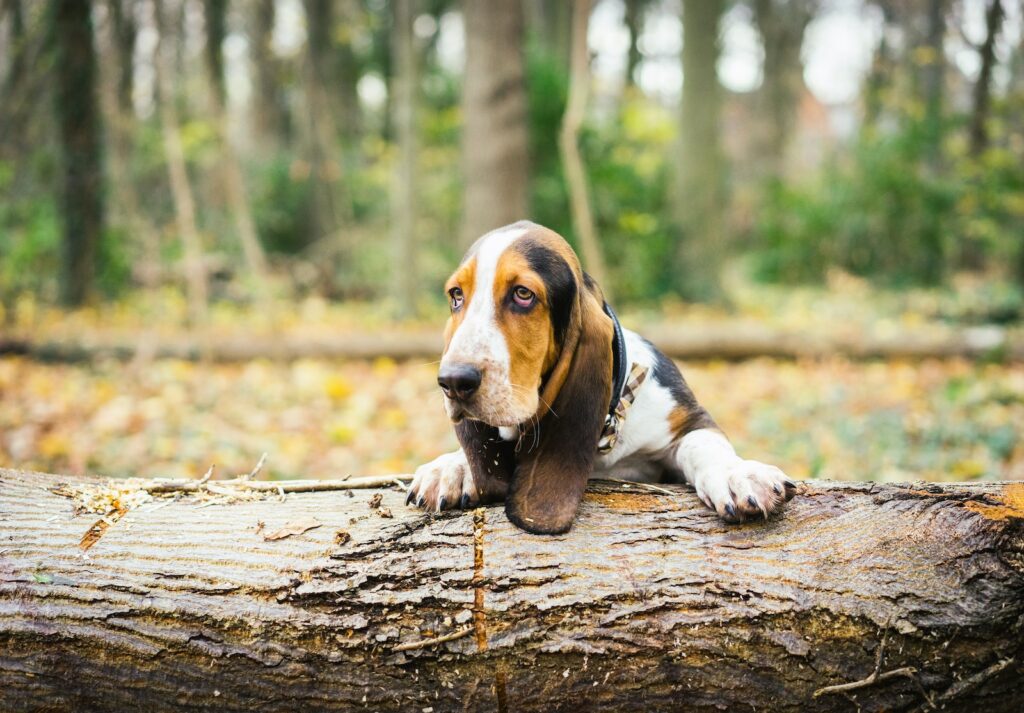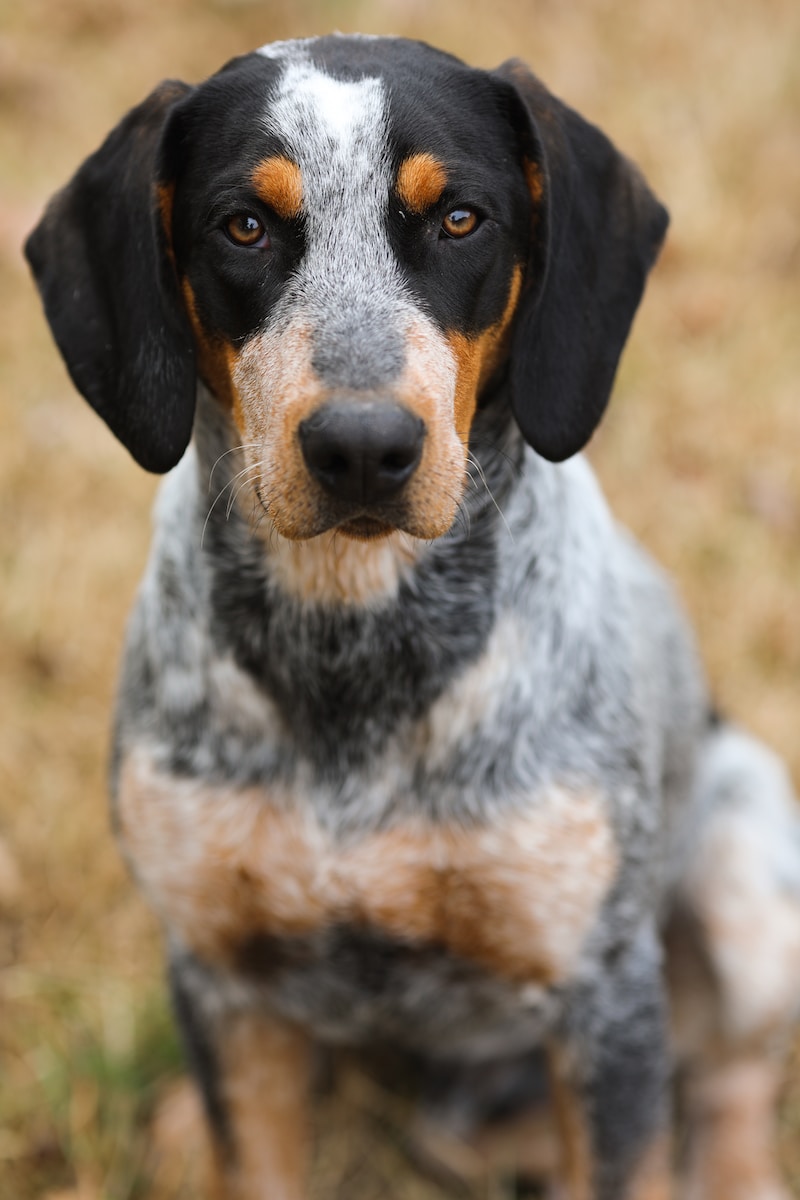Are you the proud parent of a charming Basset Hound? These short-legged, droopy-eared bundles of joy are known for their affectionate nature and endearing appearance. While they may be naturally lovable, every Basset Hound can benefit from some proper training. In this guide, we’ll explore the fascinating world of Basset Hound training, offering tips and tricks to help your loyal companion become the best version of themselves.
Understanding Basset Hounds:
Before we delve into training techniques, it’s essential to comprehend your Basset Hound’s temperament. Bassets are known for their friendly and gentle demeanor. However, they can be a bit stubborn, owing to their hound lineage. This stubbornness doesn’t mean they can’t be trained; it simply means they might require some extra patience.
Speaking of which, if you’re interested in a comprehensive dog training program that immerses you in the fundamentals of dog training, I highly endorse Adrienne Farricelli’s “Brain Training For Dogs” program.
Obedience Training:
First and foremost, it’s vital to establish basic obedience. Use positive reinforcement methods like treats and praise when your Basset Hound follows commands. Start with the essential commands: sit, stay, come, and down. Remember, consistency is key! Practice these commands daily for short durations to keep your Basset engaged.

Socialization:
Basset Hounds can be a bit reserved around new people and dogs. To counteract this, socialization is a must. Expose your furry friend to various situations, people, and other dogs from an early age. This will help them become well-rounded and confident adults.
Basset Hound Crate Training:
Basset Hounds are prone to separation anxiety. Crate training can help them feel safe and secure when you’re away. Introduce your Basset to the crate gradually, using positive associations like treats and toys. Make sure the crate is cozy and comfortable.
Once this routine is established, keep your Basset in a crate when you can’t supervise them. Dogs typically avoid soiling the area where they sleep, making crate training a valuable tool. However, avoid confining your dog in their crate for extended periods, especially for puppies. This reduces the chances of accidents and helps them learn bladder control.

Housebreaking:
Basset Hounds are among the oldest and most affectionate dog breeds, but their intelligence and stubbornness can pose a challenge during potty training. Positive, reward-based methods work best for them. Take your Basset Hound outside every two to three hours, as well as after naps and meals. They often need to go after playtime, so consider outdoor breaks then, too.
When your dog does their business outside, use a training clicker (or simply the sound of the clicker) followed by a treat and plenty of praise to reinforce the positive association with eliminating outdoors. Frequent walks help reduce accidents and combat obesity, a common issue among Basset Hounds.
Immediate Action After Accidents
If your Basset Hound has an accident indoors, take them outside immediately. This helps them associate elimination with the outdoors. Use an odor-neutralizer to clean up the mess, as the Basset’s keen sense of smell can lead them to repeat the accident if they detect the scent.
Barking Control:
Bassets are vocal dogs, and while their baying is endearing, it can become a bit much at times. Train your Basset Hound to respond to a “quiet” command. Reward them when they stop barking on cue. Be sure to give them ample exercise and mental stimulation to help reduce excessive barking.

Positive Reinforcement:
Basset Hounds training thrive on positive reinforcement. Use treats, praises, and toys as rewards for good behavior. Be generous with your encouragement, and you’ll find that your Basset is more than willing to learn.
Exercise:
This breed enjoys short bursts of exercise throughout the day. A tired Basset is a happy Basset. Plan daily playtime and walks to help them expend energy and keep them fit. Remember that while they are low-energy dogs, exercise is still crucial for their well-being.

Patience is Key:
When training your Basset Hound, it’s important to remain patient. These dogs are known for their charming yet slightly stubborn personalities. Be consistent, keep training sessions short and engaging, and you’ll see progress over time.

Extra Tips & Warnings
- Don’t allow your Basset Hound unsupervised access to any room until they’re fully house-trained. This process can take several months, so start training as soon as you bring your dog home.
- Basset Hounds are easily distracted by scents, so carry strongly scented treats (like dried liver or hot dog chunks) to keep their focus on you during training.
- Avoid punishing your Basset Hound for accidents, as this can increase anxiety and lead to more mishaps.
FAQs:
Are Basset Hounds hard to potty train?
Basset Hounds have a strong scent drive, which can make them prone to distractions while outside. Consistent outdoor visits to a designated potty area, positive reinforcement, supervision, and confinement when necessary can help with the training process. Be patient, as potty training Basset Hounds may take longer than with other breeds.
How long can a Basset Hound hold pee?
Adult Basset Hounds can typically hold their bladder for about 8 hours, but it’s best to provide regular potty breaks, especially during the training process. Puppies, elderly dogs, and those with health issues may need more frequent breaks. Pay attention to your dog’s signals and adjust the schedule accordingly.
Do Basset Hound puppies pee a lot?
Yes, Basset Hound puppies tend to pee frequently due to their small bladders and developing bladder control. Offer frequent potty breaks and closely supervise them indoors to prevent accidents. Potty training these puppies may require more patience and consistency, with positive reinforcement to reinforce good behavior in the designated area.

Bonus: “Be the Pack Leader” Training Method:
In the “Be the Pack Leader” approach for training Basset Hounds, it’s essential to establish yourself as the primary provider by making your dog wait during meal preparation and hand-feeding to reinforce your role as the source of nourishment. Spending quality time socializing, engaging in adventures, and regular exercise builds a strong bond. Teaching obedience commands like ‘sit,’ ‘stay,’ and ‘come’ in a quiet setting is vital. Incorporating fun tricks such as ‘roll over’ or ‘speak’ taps into their natural abilities and keeps them mentally stimulated. Additionally, embracing their love for scents through scent-based games not only caters to their instincts but also reinforces your position as the pack leader, increasing their likelihood to follow your lead.

In the world of dog training, Basset Hounds are truly one-of-a-kind. Their lovable nature, combined with their unique characteristics, makes training them an enjoyable journey. Remember to be patient, use positive reinforcement, and socialize them well. By following these tips, your Basset Hound will grow into a well-behaved and delightful companion that will warm your heart for years to come. Happy training!
So, if you’ve just welcomed a Basset Hound into your home or have one that needs some fine-tuning, don’t fret. With the right approach and a whole lot of love, your Basset Hound can become the well-mannered, obedient, and delightful companion you’ve always dreamed of. Good luck with your basset hound training!

